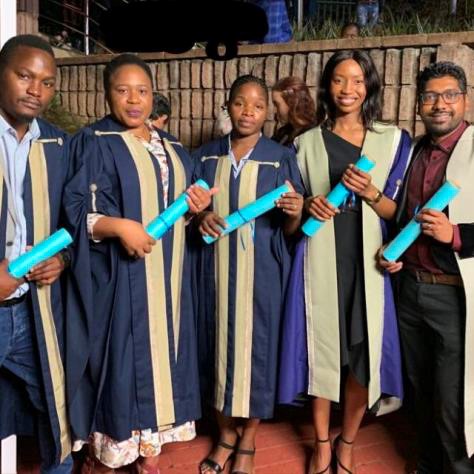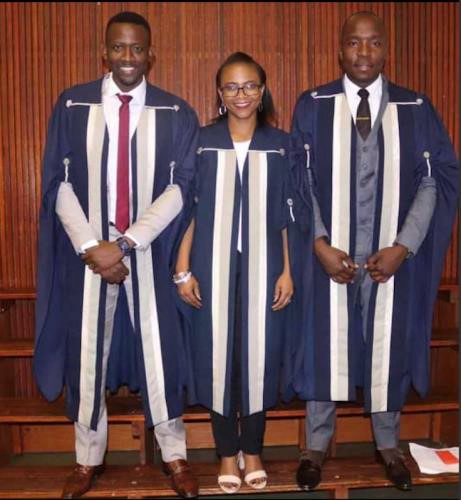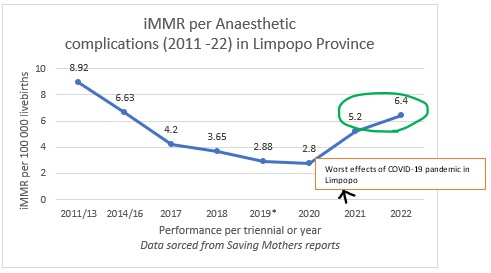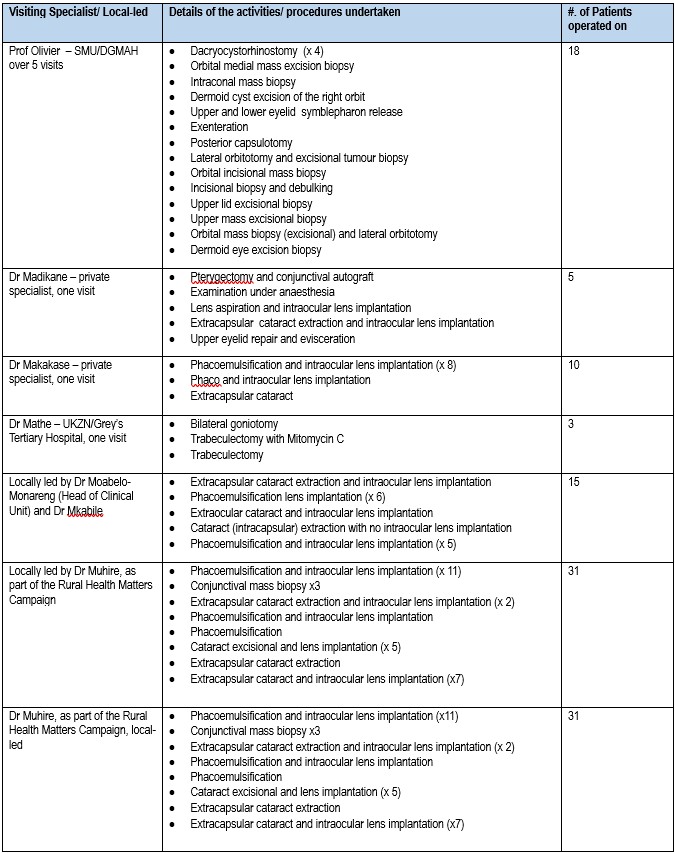Anaesthesia
Project
BACKGROUND
ToLDC provides technical and administrative support to the Clinical Department of Anaesthesiology in the province. This started when the team was operating under the auspices of the University of Limpopo Trust. Anaesthesiology is an integral part of the LimMCARE package through improving the safety of the caesarian section procedures to reduce the number of anaesthesia-related maternal mortality in the province.
Limpopo needs more anaesthesiologists in the public sector, as it currently has 5 anesthesiologists catering to the 6 million people (over 95% of those using public health facilities) in the province. The clinical department has been offering the Diploma in Anaesthesia (DA) programme since 2015 and was re-accredited in 2019 by the Health Professions Council of South Africa to train Anaesthesiologists. This required partnerships with established organisations to transfer the necessary research and related skills and expertise to the Department of Anaesthesiology for the successful throughput of the registrars to increase the pool of specialists in the province. The University of Limpopo entered into an agreement with the University of the Witwatersrand (Wits) to provide 6-month rotations to UL/ Limpopo Department of Health registrars during years 2 and 3 to get exposure to cardiovascular anaesthesia.
The TOLDC team has been supporting the Department of Anaesthesiology in coordinating the rotation to Wits. It has since seen the first cohort of four registrars completing their rotation at the end of 2023 and will sit for their final exams in 2024. A second cohort of 2 registrars started their rotation this year (January 2023). The team assists the department with sourcing funds for accommodation support and coordination for the registrars while they are at Wits. This support is critical for retaining specialists and their financial standing as registrars usually move from their base hospital (usually outside Polokwane) and sometimes without their families. They move to Polokwane for the four years of registrar training. This support ensures that they have support with the part-time movement between Gauteng and Limpopo during their rotation at Wits. The registrars have indicated deep appreciation for this support.
From the Saving Mothers report, the data shows that there is a need to revive the in-person training of medical interns and community service doctors on the Essential Steps for the Management of Obstetric Emergencies (ESMOE)’s anaesthesia module as soon as they are placed in their various hospitals. The training ensures that they are prepared to take care of pregnant mothers during caesarean section (C/S) deliveries, as C/S deliveries are the cause of maternal deaths due to anaesthetic complications. The above was done as a routine pre-COVID-19 period, with support for the Discovery Foundation grant that the team received under the University of Limpopo Trust for a three-year period from 1 April 2018 to 31 March 2021.
The grant was meant to capacitate healthcare providers on safe anaesthesia and train, mentor, and support at least 42 medical officers to complete their Diploma in Anaesthesia as an attempt to bridge the gap of the shortage of specialists in the province. Over 70 medical officers have been trained, mentored and supported to sit for their Diploma in Anaesthesia. Just over 60 of them sat for their Diploma by the end of the grant period. The programme achieved an impressive record of over 90% pass rate, with a total of 58 medical doctors successfully completing their diploma at the end of March 2021. Some of the diplomats’ graduations are shown below.
As much as most of the graduates are no longer in Limpopo, it is still a feather in the cap of the project because most of them have pursued specialisation in Anaesthesiology, albeit in other training institutions in the country, such as Sefako Makgatho University, University of Pretoria, WITS, etc. Others were lost to the private sector but remained in the province, leading anaesthetic care in their hospitals. At the same time, a few are part of the cohorts undergoing training (registrar) to be specialists through UL. Some diplomats are still part of the system in Limpopo.
When Dr Mhlari-Masingi, the head of the Clinical Depart and Anaesthesia project lead, joined the Limpopo Department of Health as the then-Provincial Clinical Specialist for Anaesthesiology in 2015, the baseline for the in-facility maternal mortality rate (iMMR) for anaesthetic complication was 8,92 maternal deaths per 100 000 live births. With the training, mentoring and supporting interventions, together with the development of protocols and other job aids, the province saw a steady reduction of anaesthetic complications to a rate of 2.8 in 2020, translating to a 58% reduction. See graphical presentation below.



The increase in 2021 and 2022 erases the 58% reduction achieved from 2015. One can argue that the increase is due to COVID-19 since Limpopo saw the worst effects in 2022, including over 40 women dying from COVID-19-related illness and complications during pregnancy, labour, and the puerperium period (42 days after delivery, miscarriage or abortion). This shows a need to revive the EMSOE training programme to as part of the interventions for safe caesarean sections.
Department of Ophthalmology
The Department of Ophthalmology faced a significant surgical backlog, which the existing Pietersburg-Mankweng Tertiary and Academic Hospital Complex team could not significantly reduce due to a lack of specialists in the province. The Discovery Foundation awarded the team a one-year Distinguished Visitor Award to bring renowned specialists from various institutions in the country to help the local team reduce the surgical backlog for ophthalmic procedures. These were:
- Prof Jan Olivier – the Head of the Ophthalmology Department at Sefako Makgatho University (SMU) /Dr George Mukhari Academic Hospital (DGMAH)
- Dr Nombuso Mathe – the Head of the Ophthalmology Department at the University of Kwa-Zulu Natal (UKZN) /Grey’s Tertiary Hospital
- Dr Anesu Madikane is a private ophthalmologist formerly with the Kalafong Tertiary Hospital in Gauteng.
- Dr Gedion Makakase is a private ophthalmologist who formerly worked with the Pietersburg Mankweng Tertiary Hospital Complex as a medical officer in the Ophthalmology Department before specialising in Gauteng.
Through the grant, 82 procedures were conducted, contributing to the Department of Ophthalmology reducing the surgical backlog from 36,000 in 2020 to 20,000 in 2023. The visiting specialists also transferred valuable ophthalmic skills to the local team of specialists and other healthcare professionals at the Department of Ophthalmology. The significant reduction in the ophthalmic surgical backlog is due to the Rural Health Matters Campaign. This award-winning outreach program sees specialists (local ones and volunteers from all over SA and internationally) visiting a district every month to perform surgical procedures and transfer skills to local teams throughout the year. This outreach started as an effort to reduce orthopaedic surgical backlogs in 2020. Still, ophthalmology has been part of this programme from early on, reducing many backlog procedures in the province.
The ToLDC team supported the Department even after transitioning from the University of Limpopo Trust. There is a need for the project to be extended to regional hospitals so that patients are saved from travelling from our deep rural villages to Polokwane.


